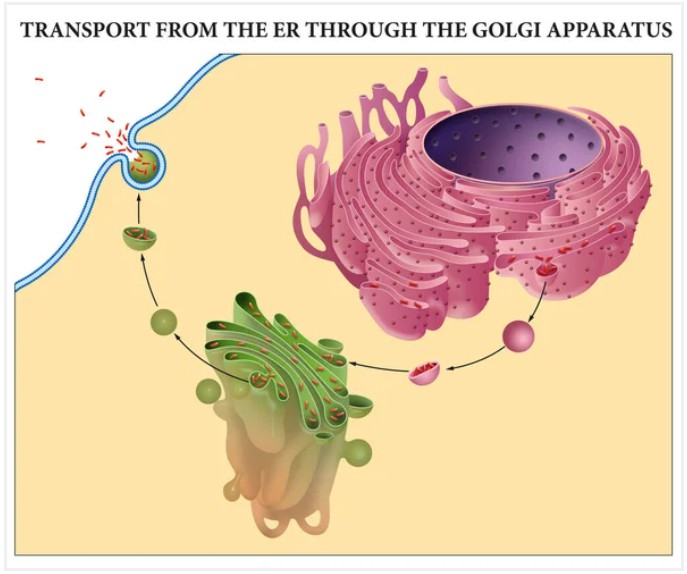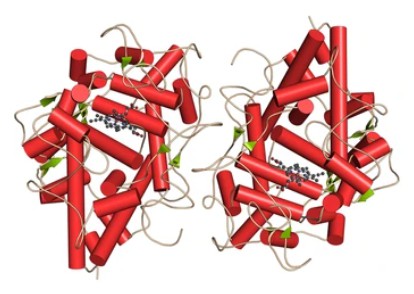Lysosomal Enzymes
Related Symbol Search List
- CTSS
- CTSK
- ARSA
- ARSB
- ARSG
- ASNA1
- CD63
- CHI3L1
- CHI3L2
- CHIT1
- CTSA
- Ctsb
- Ctsc
- Ctsd
- Ctse
- CTSH
- Ctsl
- CTSO
- CTSL2
- CTSZ
- FUCA1
- GALC
- GBA
- GBA3
- GLA
- GLB1
- GNS
- GUSB
- HEXA
- HPSE
- HYAL1
- IDS
- Klotho beta
- LAMP1
- LAMP2
- LAMP3
- LAMP5
- Lgmn
- M6PR
- NAGA
- NEU1
- RAB27A
- STAMBP
- SULF2
Immunology Background
About Lysosomal Enzymes
Lysosomal enzymes are a group of specialized enzymes that play a crucial role in the function and maintenance of lysosomes, which are membrane-bound organelles found within cells. Lysosomes are involved in the degradation and recycling of various cellular components, including proteins, lipids, carbohydrates, and nucleic acids.
Lysosomal enzymes are synthesized in the endoplasmic reticulum and then transported to the Golgi apparatus, where they are packaged into vesicles called lysosomes. These enzymes are designed to function optimally in the highly acidic environment of lysosomes, which is maintained by a proton pump present in the lysosomal membrane.
There are several classes of lysosomal enzymes, each responsible for the breakdown of specific macromolecules. Some of the major classes of lysosomal enzymes include:
- Proteases: These enzymes, such as cathepsins and proteases, degrade proteins into smaller peptides and amino acids.
- Lipases: Lipases, such as acid lipase, hydrolyze lipids into fatty acids and glycerol.
- Glycosidases: Glycosidases, including glucosidases and galactosidases, break down complex carbohydrates into simpler sugar molecules.
- Nucleases: Nucleases, such as acid phosphatase and deoxyribonuclease, degrade nucleic acids into nucleotides.
Deficiencies or malfunctioning of lysosomal enzymes can lead to lysosomal storage disorders (LSDs), a group of inherited metabolic disorders characterized by the accumulation of undigested substances within lysosomes. Examples of LSDs include Gaucher's disease, Tay-Sachs disease, and Pompe disease.
The study of lysosomal enzymes is vital for understanding lysosomal function, the molecular basis of LSDs, and the development of therapeutic strategies. Researchers use various techniques to study lysosomal enzymes, including enzyme assays, immunohistochemistry, and genetic analysis. Additionally, the development of enzyme replacement therapies and small molecule chaperones has shown promise in treating some LSDs by supplementing or enhancing the activity of deficient lysosomal enzymes.

Physiologic Functions of Lysosomal Enzymes
Intracellular Digestion: Lysosomal enzymes are responsible for intracellular digestion and recycling of cellular components. They break down various macromolecules, including proteins, lipids, carbohydrates, and nucleic acids, into their constituent building blocks. This process allows for the reuse of essential nutrients and the elimination of unwanted or damaged cellular materials.
Autophagy: Lysosomal enzymes are involved in the process of autophagy, which is the degradation and recycling of damaged organelles and proteins. Autophagy helps maintain cellular homeostasis and prevents the accumulation of toxic substances, ensuring the overall health and function of cells.
Tissue Remodeling and Development: Lysosomal enzymes play a crucial role in tissue remodeling and development during embryogenesis and postnatal growth. They are involved in the degradation of specific extracellular matrix components, such as collagen and glycosaminoglycans, which are necessary for tissue remodeling, wound healing, and organ development.
Immune Response: Lysosomal enzymes are involved in immune responses, particularly in the phagocytic cells of the immune system, such as macrophages and neutrophils. They participate in the degradation of engulfed pathogens, facilitating the clearance of infectious agents. Lysosomal enzymes also play a role in antigen presentation and the activation of immune cells.
Hormone Regulation: Lysosomal enzymes are involved in the regulation of hormone levels. For example, lysosomal enzymes in endocrine cells are responsible for the degradation of peptide hormones after their release, ensuring proper hormone balance and signaling.
Calcium Homeostasis: Lysosomal enzymes participate in maintaining calcium homeostasis within cells. They are involved in the breakdown of calcium storage molecules, such as calcium oxalate crystals, preventing the accumulation of excessive calcium and maintaining cellular calcium levels within a normal range.
Neurotransmitter Metabolism: Lysosomal enzymes are crucial for the metabolism of neurotransmitters in the central nervous system. They participate in the breakdown and recycling of neurotransmitters, ensuring proper neurotransmitter balance and function in neuronal communication.
These are just a few examples of the physiological functions of lysosomal enzymes. Their activities are tightly regulated and essential for maintaining cellular homeostasis, tissue integrity, and overall organismal health.

Available Resources for Lysosomal Enzymes
At Creative BioMart, our primary focus is to provide an extensive array of products associated with lysosomal enzymes, including recombinant proteins and various others. We understand the unique requirements of researchers in the academic and biopharmaceutical sectors, and thus, we offer personalized services to cater to their specific needs.
In addition to our diverse product range and tailored services, we take pride in offering a comprehensive range of resources encompassing every facet of lysosomal enzymes. These resources encompass detailed information on involved pathways, protein functions, interacting proteins, relevant articles, comprehensive research area overviews, and in-depth discussions on various related topics.
Our commitment lies in supporting your research and development endeavors in the dynamic field of lysosomal enzymes. We encourage you to thoroughly explore our product portfolio, make the most of our customization services, and leverage the wealth of detailed resources we provide to propel your scientific endeavors forward.
Our Featured Products
- Active Recombinant Human ARSA, His tagged
- Recombinant Human ARSA Protein, His-tagged
- Recombinant Mouse Arsa, His tagged
- Recombinant Human ARSG, GST-tagged
- Recombinant Human ASNA1, His-tagged
- Recombinant Human ASNA1 protein, GST-tagged
- Recombinant Human CD63 protein, His-tagged
- Recombinant Human CHI3L1 protein, His-tagged
- Recombinant Rat Chi3l1 protein, His-tagged
- Recombinant Human CHI3L2, His tagged
- Recombinant Mouse Ctsa, His tagged
- Recombinant Human CTSC, His tagged
- Active Recombinant Human CTSD protein, His-tagged
- Recombinant Human CTSE, GST-tagged
- Recombinant Human CTSH, GST-tagged
- Recombinant Human CTSL2, His tagged
- Active Recombinant Human CTSZ Protein, His-tagged
- Recombinant Human FUCA1, GST-tagged
- Recombinant Human GALC Protein, His-tagged
- Recombinant Human GBA3, His tagged
- Recombinant Human GLA protein, His-tagged
- Recombinant Human GLB1 protein, His-tagged
- Active Recombinant Human HEXA protein, His-tagged
- Recombinant Human LAMP1, His tagged
- Recombinant Human LAMP2 protein, GST-tagged
- Recombinant Human LAMP3 protein, His-tagged
- Recombinant Human NAGA Protein, His-tagged
- Recombinant Human NEU1, His-tagged
- Recombinant Human STAMBP Protein, His-tagged
- Recombinant Mouse Sulf2 Protein, His-tagged
If you have any questions, requirements, or cooperation intentions, please feel free to contact us. We very much look forward to working with you and helping you achieve research and commercial success.
References:
- Terra WR, Dias RO, Ferreira C. Recruited lysosomal enzymes as major digestive enzymes in insects. Biochem Soc Trans. 2019;47(2):615-623. doi:10.1042/BST20180344.
- Trivedi PC, Bartlett JJ, Pulinilkunnil T. Lysosomal Biology and Function: Modern View of Cellular Debris Bin. Cells. 2020 May 4;9(5):1131. doi: 10.3390/cells9051131. PMID: 32375321; PMCID: PMC7290337.

